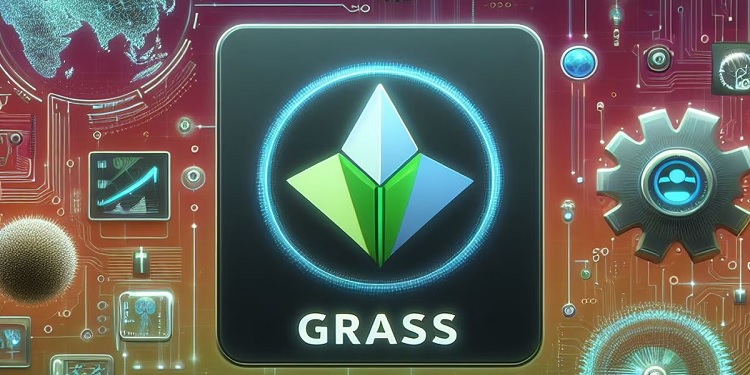Grass, an innovative application enabling users to monetize their internet connections, has unveiled an unconventional approach to support AI training by developing a layer 2 blockchain network based on Solana. This strategic move aims to address the challenges faced in training AI models, particularly concerning the access to vast amounts of data while combating restrictions imposed by many websites on data center IP addresses.
Grass: Bridging Data Restrictions for AI Training
Founded in 2022 and headquartered in Toronto, Canada, Grass recently secured $3.5 million in funding from investors, including Polychain Capital. The company boasts over 1 million users and a diverse client base, although specific client names remain undisclosed.
Solana Chosen for Optimal Performance
Chris Nguyen, the Chief Technology Officer of Wynd Network, the parent company of Grass, explained that Solana was selected due to its exceptional throughput and low transaction fees, critical factors given the scale of data processing involved in Grass’s operations. Nguyen emphasized the advantages of utilizing blockchain technology for storing AI training data, citing benefits such as combating data poisoning and fostering transparency in rewarding users for their contributions.
Addressing Privacy and Security Concerns
While Grass’s model relies on utilizing users’ internet connections for AI training, questions arise regarding privacy and security. Nguyen assured users that the Grass app solely routes web requests through their internet connections without accessing any personal device or browsing activity. Furthermore, he clarified that Grass strictly adheres to scraping publicly available data, avoiding any website with login requirements.
Enhancing Transparency with Layer 2 Blockchain
Although Grass’s current data network operates outside of blockchain technology, the upcoming layer 2 network aims to introduce metadata recording to verify the source of scraped data. By leveraging zero-knowledge proofs to ensure privacy and security, Grass intends to publish data batches onto the layer 2 blockchain, subsequently validating them on Solana.
Expanding Applications and Ensuring Accountability
Grass already serves diverse clients, including a financial insights platform for hedge funds and a data repository for training language models. Despite the potential for various applications, Grass remains committed to stringent vetting processes for its clients, ensuring responsible and ethical use of its network.
Embracing the Potential of Public Data Access
Nguyen expressed excitement about Grass’s potential to facilitate access to a wide range of public data, enabling the development of diverse products. While acknowledging potential concerns about user activities, Nguyen reaffirmed Grass’s commitment to vetting clients and promoting responsible usage of its network.
In conclusion, Grass’s integration of Solana-based blockchain technology represents a significant step forward in democratizing AI training data access while ensuring transparency and accountability in its operations. Through its innovative approach, Grass aims to revolutionize the landscape of AI development, offering opportunities for diverse applications fueled by public data access.

